
What is sustainable living? How Your Choices Shape a Sustainable Present and Future
By embracing sustainable living, we adopt practices that contribute to the well-being of the environment, society, and economy.
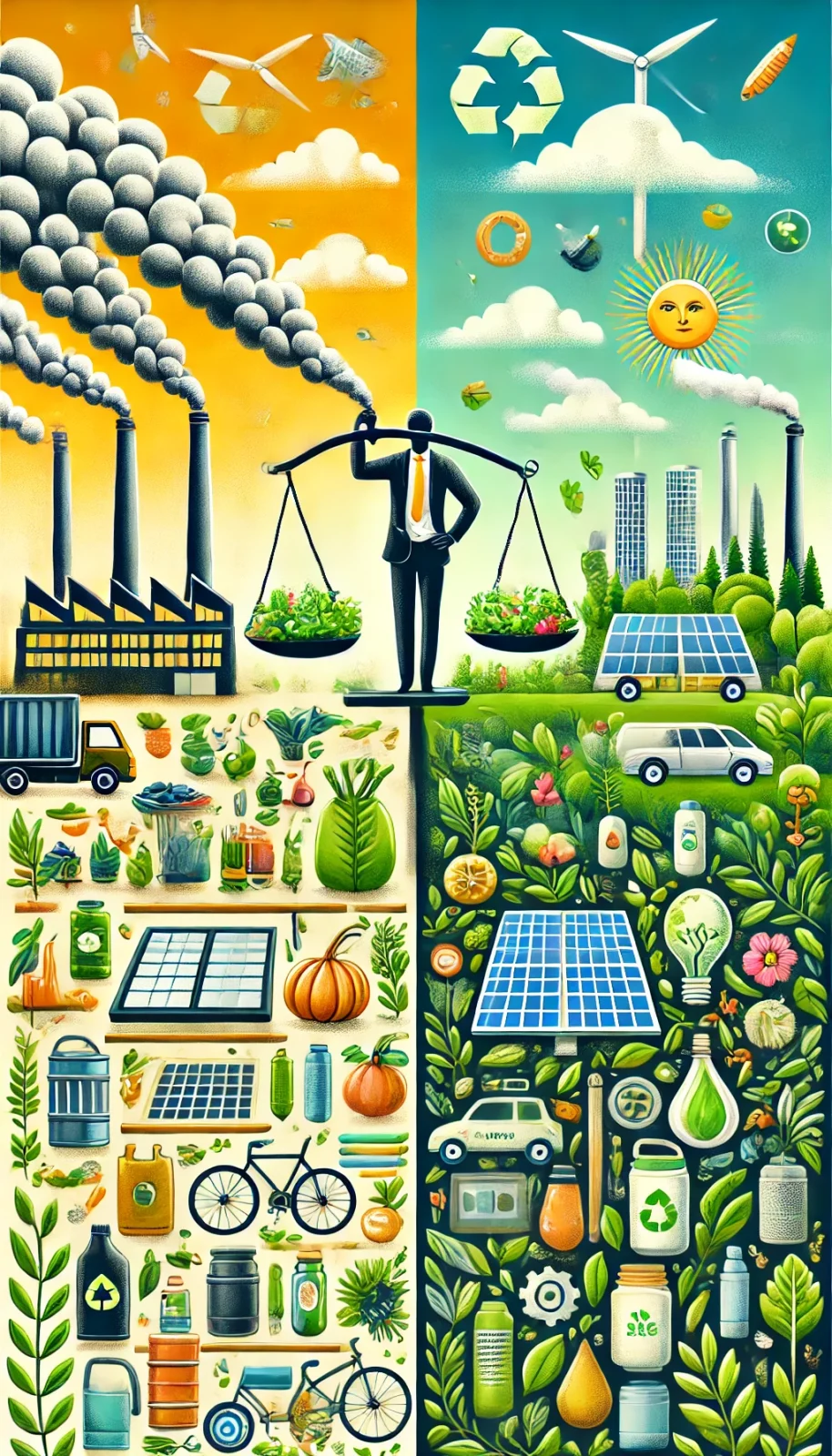
Many strive for sustainable living, but numerous challenges can feel discouraging along the way. Despite the obstacles, it’s essential to understand that a sustainable lifestyle is achievable with the right strategy and support. In this article, we’ll discuss the main challenges people face on their journey to sustainability and provide practical tips for overcoming them.
Many sustainable products and technologies, such as solar panels, energy-efficient appliances, or rainwater harvesting systems, come with high upfront costs. These costs often discourage families living paycheck to paycheck or with limited budgets for essentials. While these investments can lead to significant savings in the long term, the initial financial outlay can be a barrier for many households.
Solution:
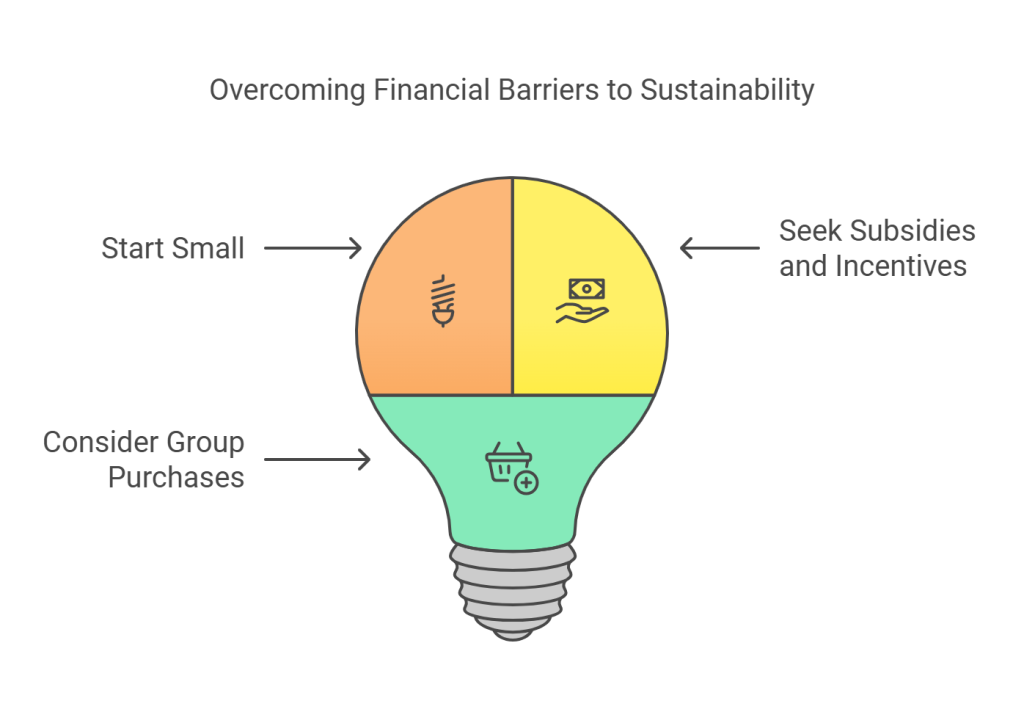
One of the biggest challenges is the lack of knowledge about what sustainable living means and the steps to take. Many people feel overwhelmed by the information available and are unsure whom to trust. Often, they don’t know where to begin or how to determine if a product is genuinely eco-friendly, effective, and cost-efficient.
Solution:
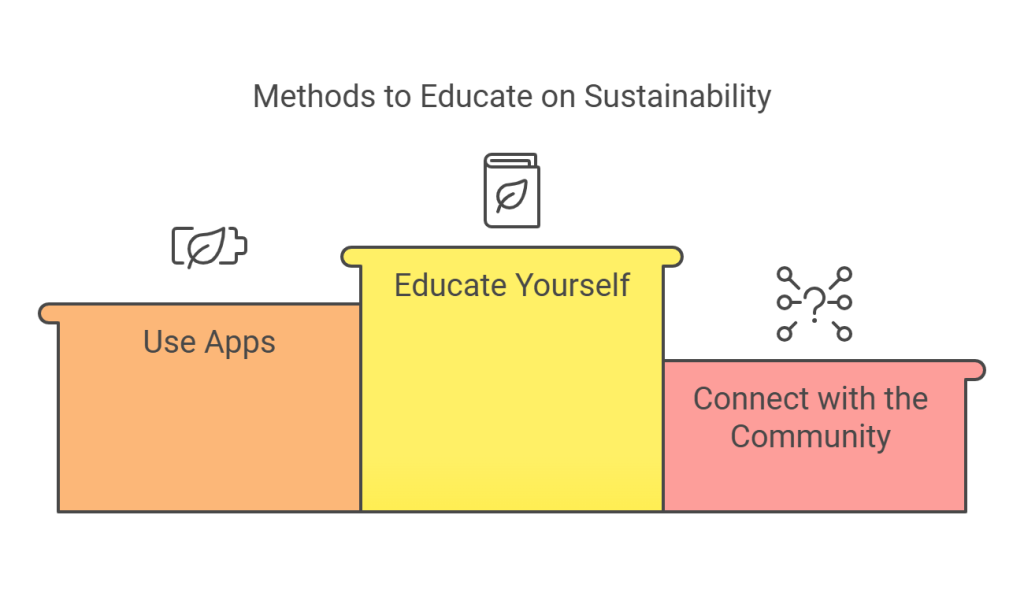
In many areas, systems for recycling, composting, or supporting renewable energy are underdeveloped. This is especially true in rural regions, where access to such services is often limited or nonexistent. The lack of local infrastructure can discourage people from taking steps toward sustainability.
Solution:
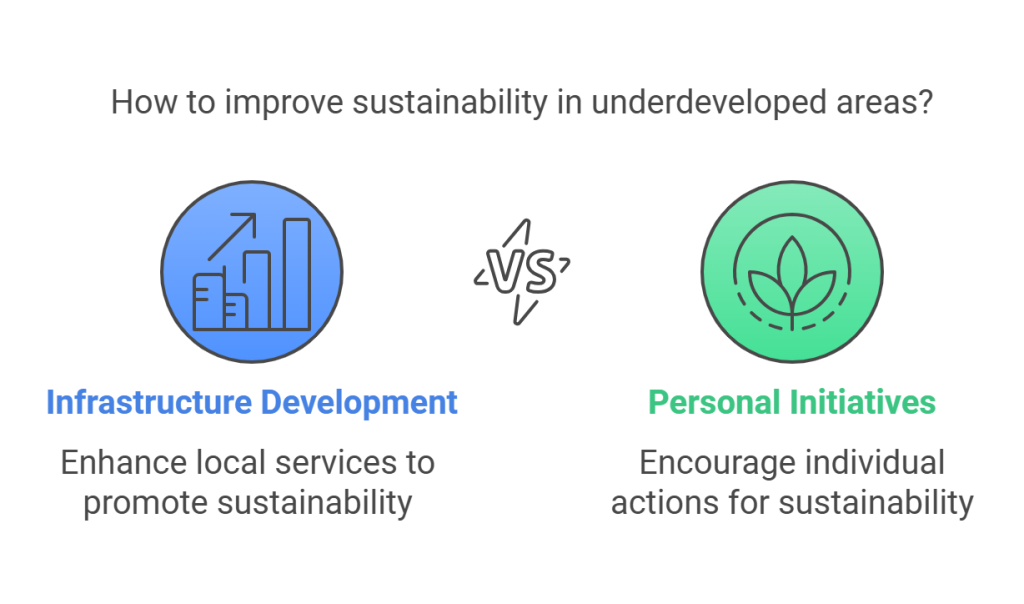
Changes in habits and traditions sometimes face resistance. This is particularly true in communities where traditional lifestyles are deeply rooted, making it hard to accept change. People in your community may not support or understand your efforts toward sustainability, which can be frustrating.
Solution:
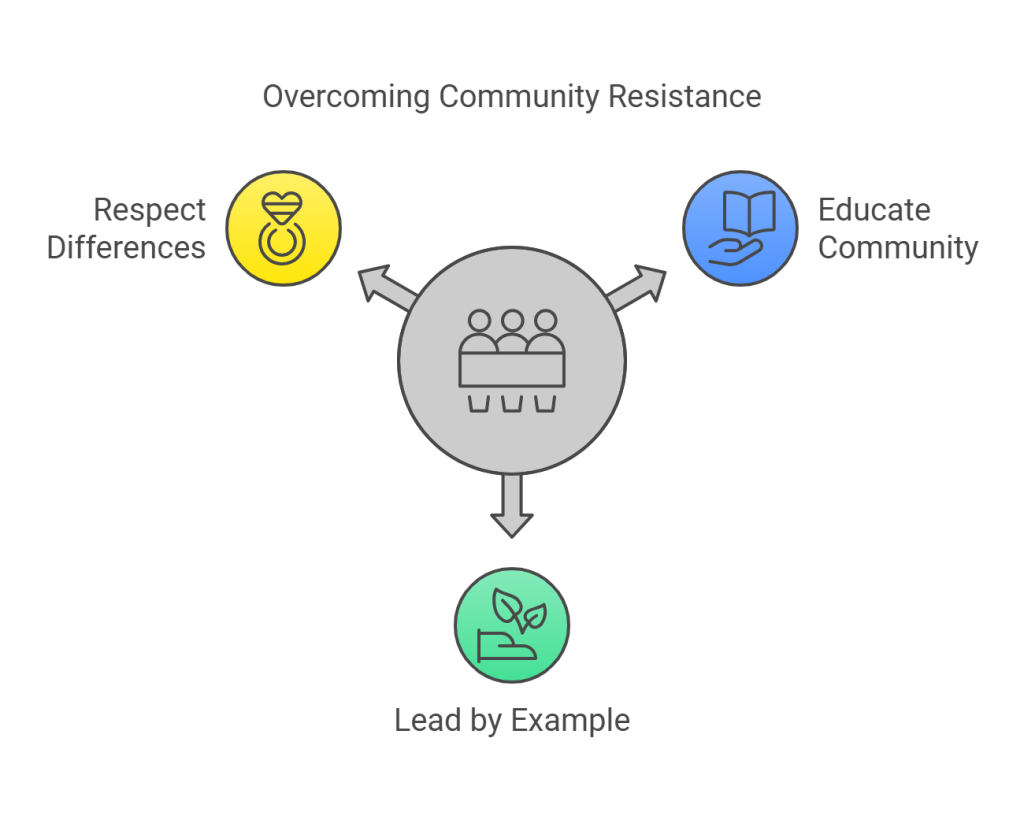
Sustainable practices, such as making homemade cleaning products or growing your food, can feel like additional work. People often feel they don’t have enough time to dedicate to these activities alongside daily responsibilities, especially at the beginning when these activities aren’t yet part of their routine.
Solution:
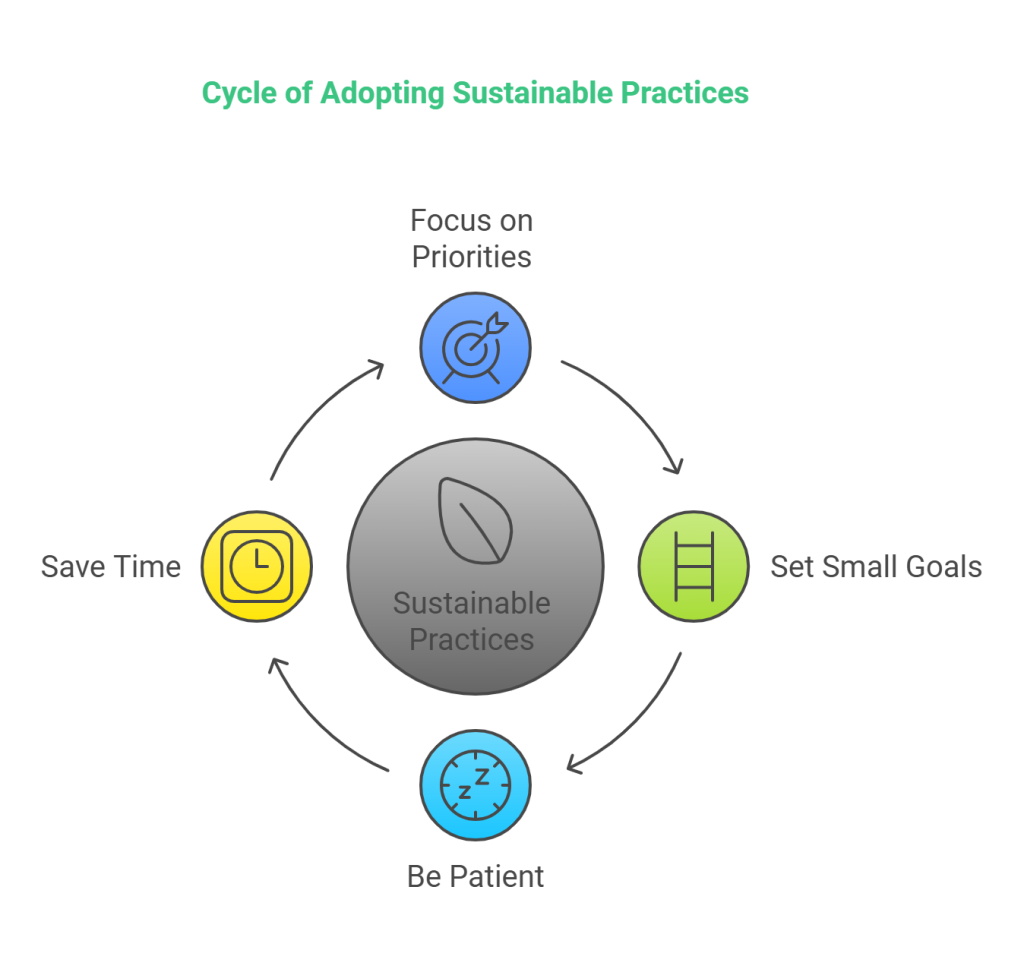
A lack of support from local authorities or complicated bureaucratic procedures can discourage people from investing in sustainable solutions. Often, these procedures require time, money, and energy that many aren’t willing to spend.
Solution:
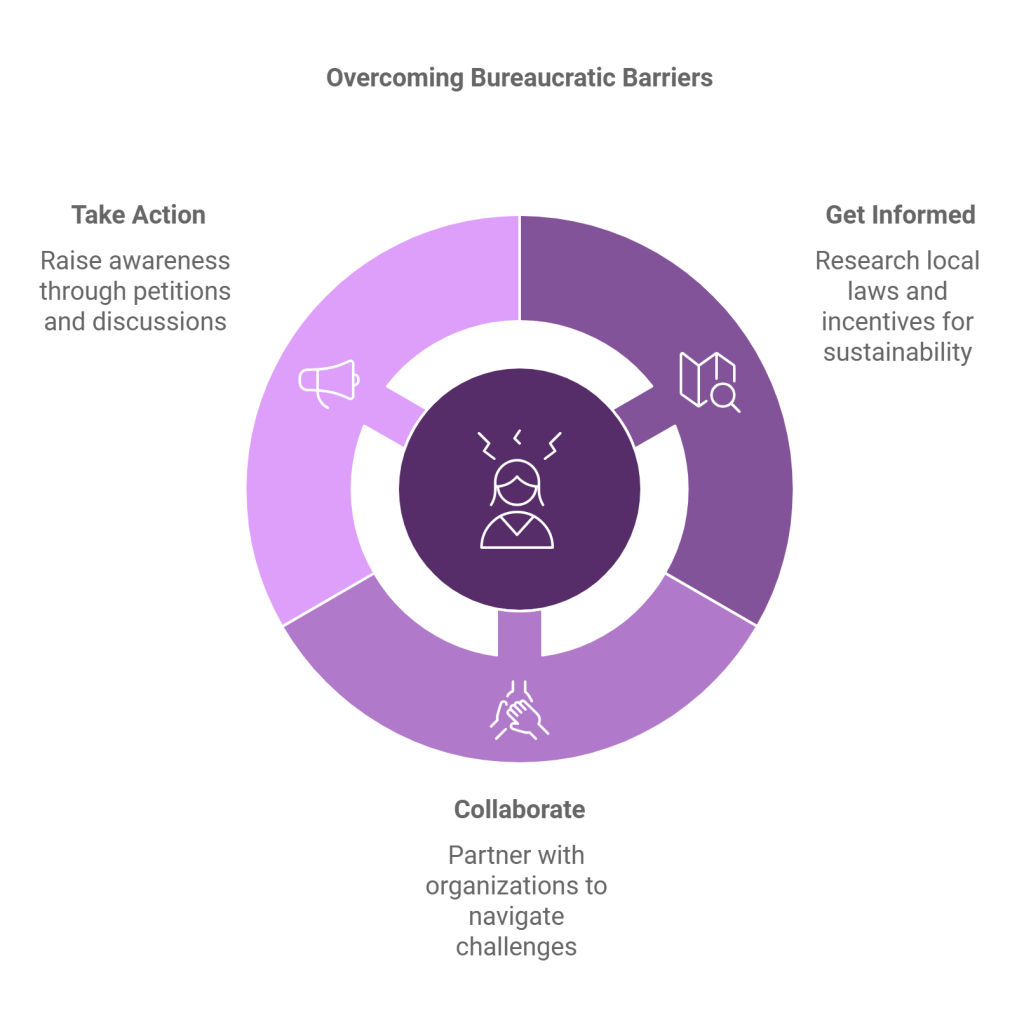
Sustainable living can seem like a challenging goal, but with the right information, planning, and support, obstacles can be overcome. Start small, educate yourself, and connect with others who share your values. Every change, no matter how small, contributes to creating a more sustainable future for you and the planet. Your efforts will improve your lifestyle and inspire others to follow the same path.
Facing challenges in your sustainable living journey? Share your struggles in the comments! Let’s tackle them together with practical, science-backed solutions for a greener lifestyle.

By embracing sustainable living, we adopt practices that contribute to the well-being of the environment, society, and economy.

The idea of a sustainable diet was established in 2010.

A sustainable diet is considered to be a diet that resembles a nutritionally healthy diet.

Sustainability goes beyond admiration; it is a commitment to maintaining the delicate balance between our species and the planet.

Several scientists are “defending” meat consumption, replying that red meat is the source of essential nutrients.
Welcome to Sustainable Living by Science. With our scientific mindset, we are exploring how to nurture our well-being while caring for the environment. We are sharing the meaning of sustainability through evidence-based practices. Join us on this journey towards a greener, healthier future where science guides us to make the best choices for ourselves, the planet, and others.
All content is © 2024 by Sustainable Living by Science. All rights reserved.